I can’t resist taking online quizzes about politics and economics, especially when they generate results that I like (I’m a “minimalist” on fiscal policy, a “right libertarian” on philosophy, and I get a failing grade of 6% on “communism“).
So you won’t be surprised that I was interested to see that Pew Research has survey data on “political typology.” Instead of dividing the population into Democrats and Republicans, or liberals and conservatives, they identify nine different groups of potential voters. As you can see from the adjacent chart, there are four Democrat-leaning groups and four Republican-leaning groups, and some “stressed sideliners” stuck in the middle.
Needless to say, I wanted to see how I would be categorized, so I took the quiz (and you can as well by clicking here). Here is the description of where I fit. Given the options (they didn’t have a “libertarian” category), this seems reasonable.
But while I’m satisfied with where I landed, this doesn’t mean the quiz is perfect. As is usually the case, I think some of the questions are poorly worded.
For instance, does Question #2 mean open borders, or does it mean nativism, or something in between?
I picked openness, but I would have preferred better wording.
I also don’t like Question #5 since we don’t know what is meant by “equal rights.”
Is is narrowly defined (i.e., equality under the law), or is the question asking us to consider the broader philosophical fight about equality of opportunity vs. equality of outcomes?
I picked the middle option because I view school choice as a civil rights issue, but I’m guessing that’s not what the Pew folks had in mind when they designed the question.
And Question #14 is problematical because I want some criminals to serve longer sentences and others to be immediately pardoned because I don’t believe in victimless crimes.
So I wound up picking “the right amount of time” even though that’s a very weak substitute for my actual position.
Now that I’m done quibbling about some of the questions, I’ll close with this analysis of how people like me (the “Ambivalent Right”) think about certain issues, both compared to the general population, as well as the other eight groups.
For what it’s worth, I’m disappointed my group doesn’t get the best scores on the first two issues (as defined by being in favor of smaller government and less red tape).
P.S. If you share my weakness and like taking online quizzes, you can start by clicking here.
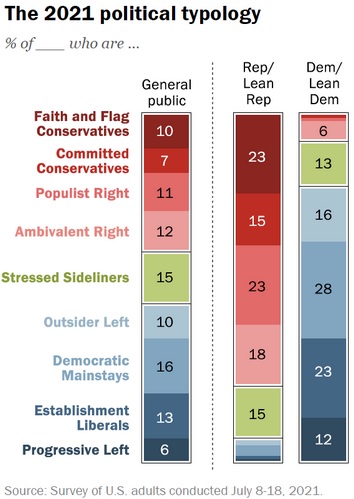
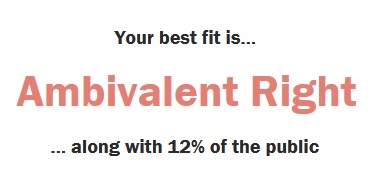

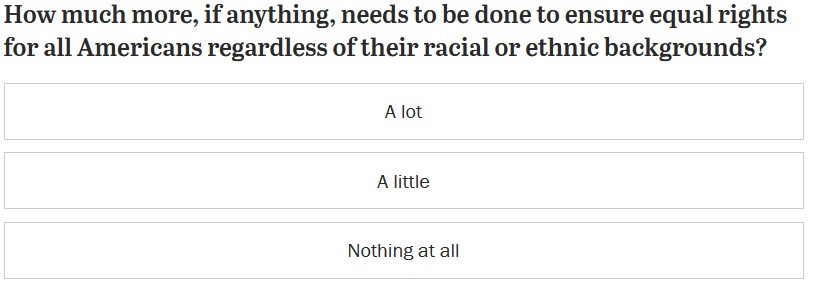
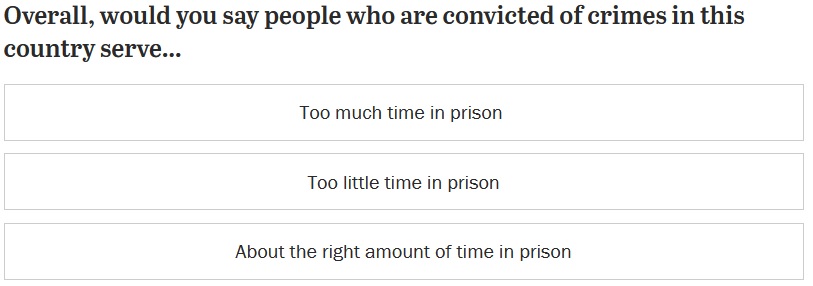
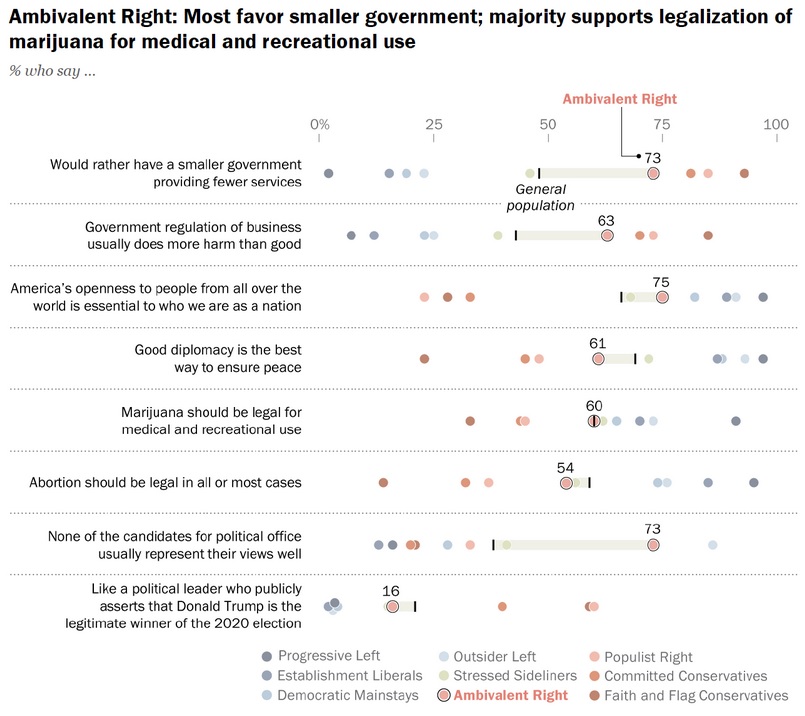
No comments:
Post a Comment